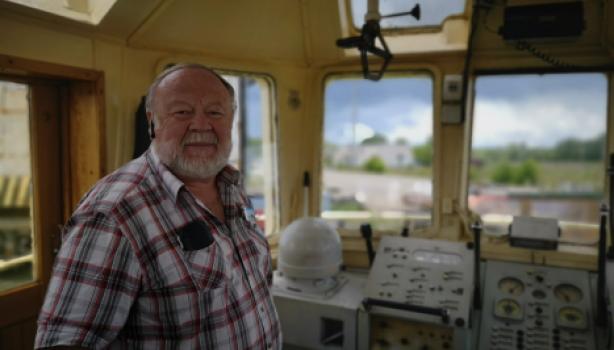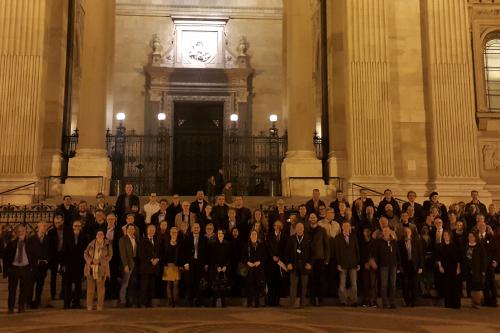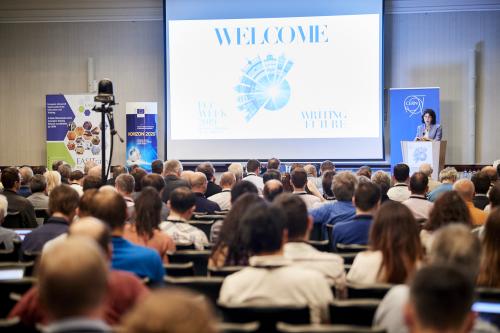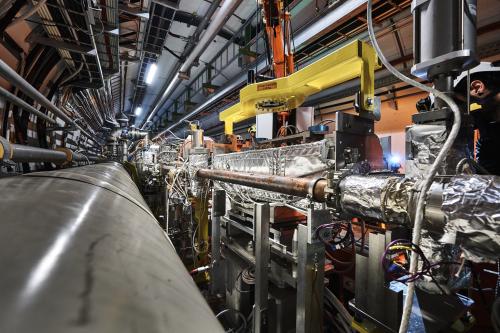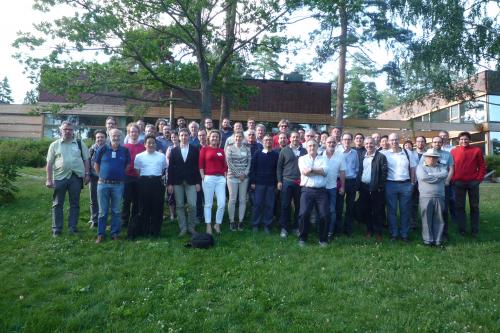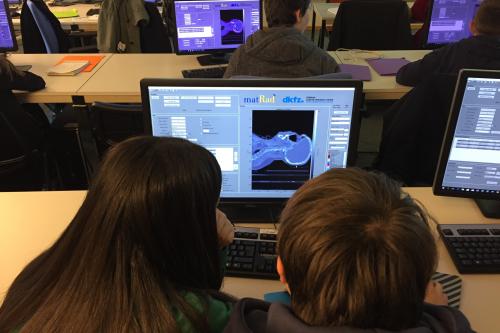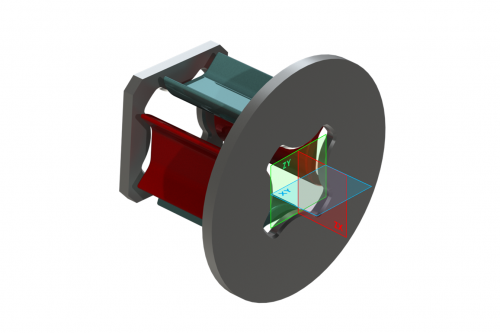July 2019
Welcome to Issue 29 of Accelerating News!
In this summer issue, we share a report from events for the accelerator community, technical updates that derive from or aim to support post-LHC colliders, new results for innovative accelerator applications, and a new outreach initiative.
In our report from Future Circular Collider (FCC) Week 2019, we review the advancements made following the submission of the FCC Conceptual Design Report and highlight the workshop on the socioeconomic impact of large research facilities. The last few months were a busy period for the accelerator community. So, in addition, we report on the ARIES Annual Meeting, which took place in April 2019 in Budapest; and on the Symposium ‘Accelerators for Science and Society’, organised by the University of Liverpool in June.
With a focus on outreach, we present a collaborative initiative from CERN, DKFZ Heidelberg and GSI Darmstadt to engage high-school students with particle therapy, an initiative that could, in the future, complement the International Physics MasterClass from IPPOG.
On a more technical note, you can read an update on a new sensor developed to map the electrostatic field in an arbitrary 3D volume, tested in ELENA; on the advancements made by CompactLight towards a more accessible generation of FEL facilities, using Compact Linear Collider (CLIC) technology, among others; and on the use of accelerators for cleaning the exhaust gas of a ship diesel engine. In the field of material science, we highlight the new higher conductive material developed for the collimator jaws of a high-luminosity LHC.
Finally, we would like to thank those who replied to the Accelerating News Reader’s Survey! The survey will be open for two more issues, so I hope you will take the time to participate and help us better understand your interests.
Happy reading!
Daniela Antonio, for the Accelerating News Editorial Team
Shaping the future of accelerators: the new innovation pilot project
Take part in the new Accelerator Innovation Pilot project by submitting your proposal to the open call launched by TIARA and ARIES until 31 August 2019.
Bringing particle accelerators on ships
The first test to use a particle accelerator to clean the exhaust gases of a ship took place in Riga in July 2019. The first results are encouraging.
Budapest welcomes the 2nd ARIES Annual Meeting
ARIES Annual Meeting highlights reports from networks, transnational access, proof-of-concept projects, workshops and a special session on accelerator science applied to medicine.
FCC Week 2019 accelerates progress towards post-LHC colliders
Academic and research institutes, industrial partners and funding agencies met in Brussels for the Future Circular Collider (FCC) study annual meeting.
A novel composite for HL-LHC collimators
During the LS2, the LHC collimation system will be upgraded with new primary collimators for halo cleaning and in the dispersion suppression region.
Improving access to FEL facilities through the CompactLight project
One of technologies used by CompactLight is the high-gradient normal conductive RF acceleration in the X-band, developed at CERN within the context of the CLIC study.
Accelerators for Science and Society
International event in Liverpool showcases benefits of accelerator R&D and engages the next generation of researchers.
Master Class captivates the next generation of scientists
CERN, DKFZ Heidelberg and GSI Darmstadt engage the next generation of scientists through a hands-on experience on particle therapy.
3D mapping of electrostatic fields
MEMS sensor successfully used for precise measurement of 3D electrostatic field. A precise field measurement technique such as this offers an interesting opportunity.

